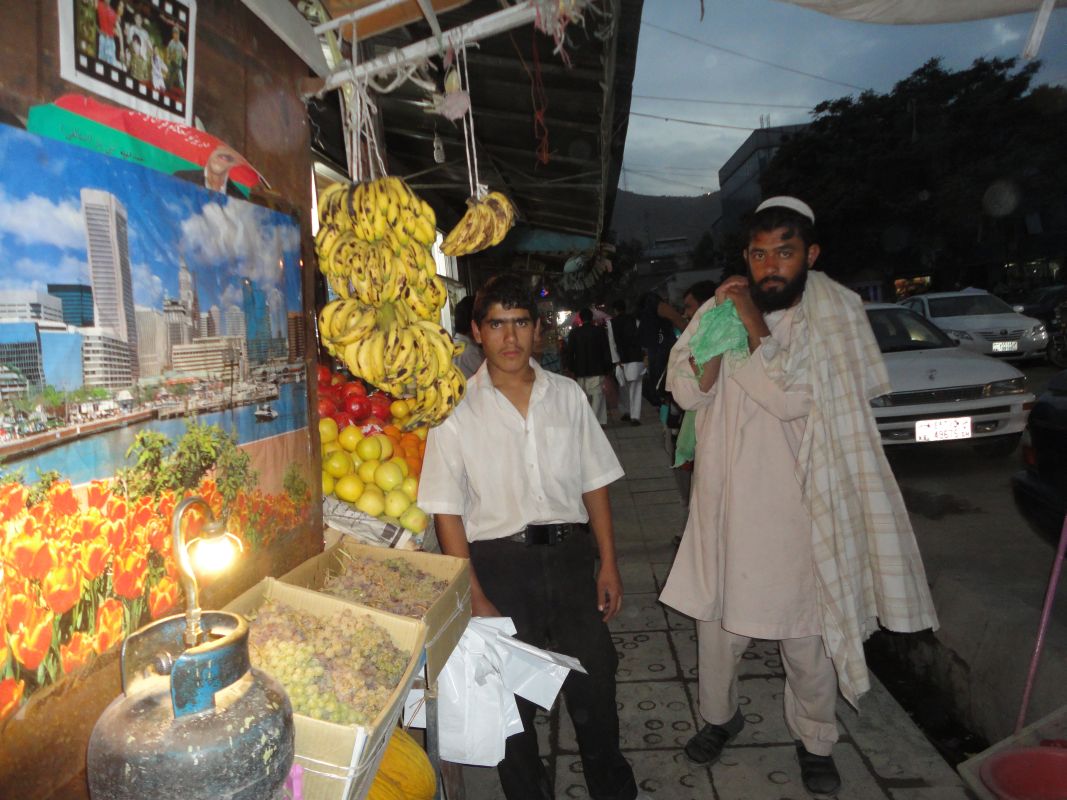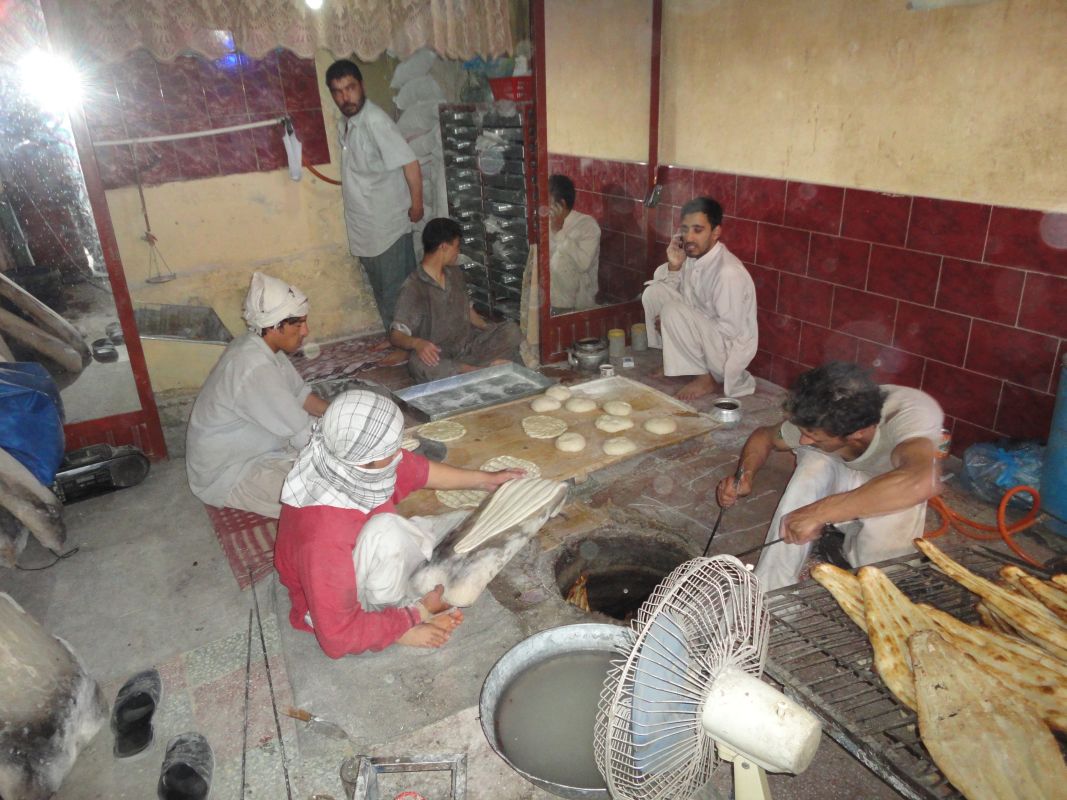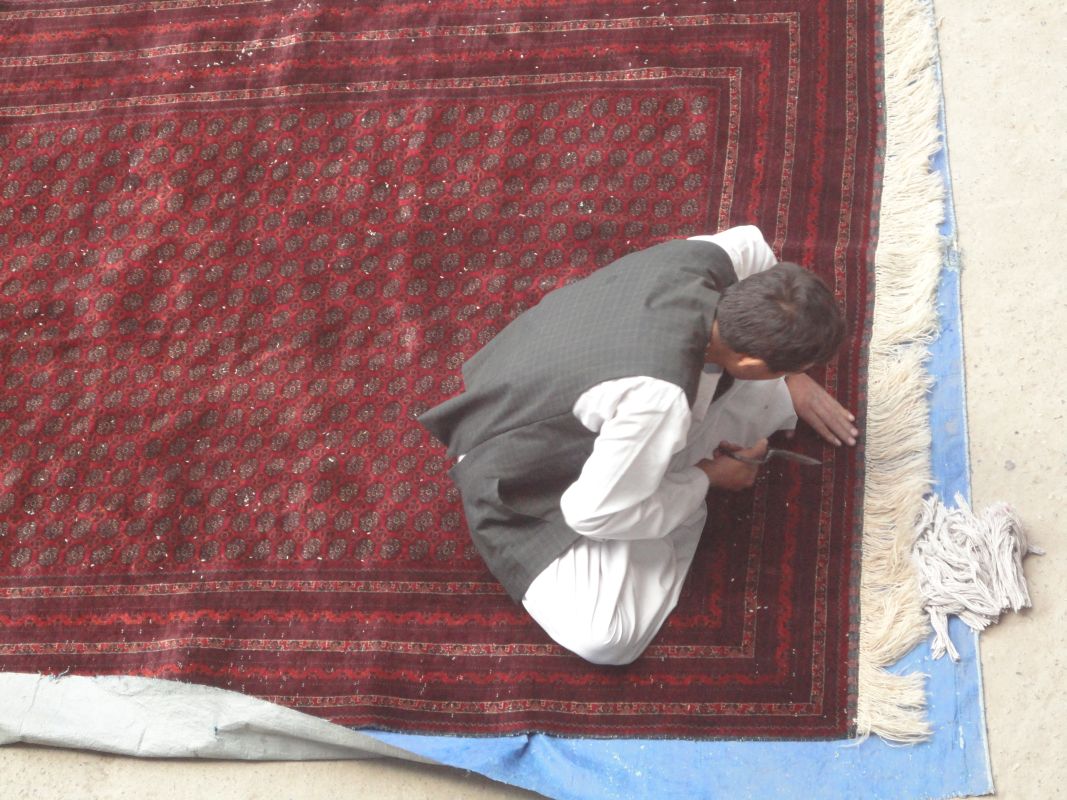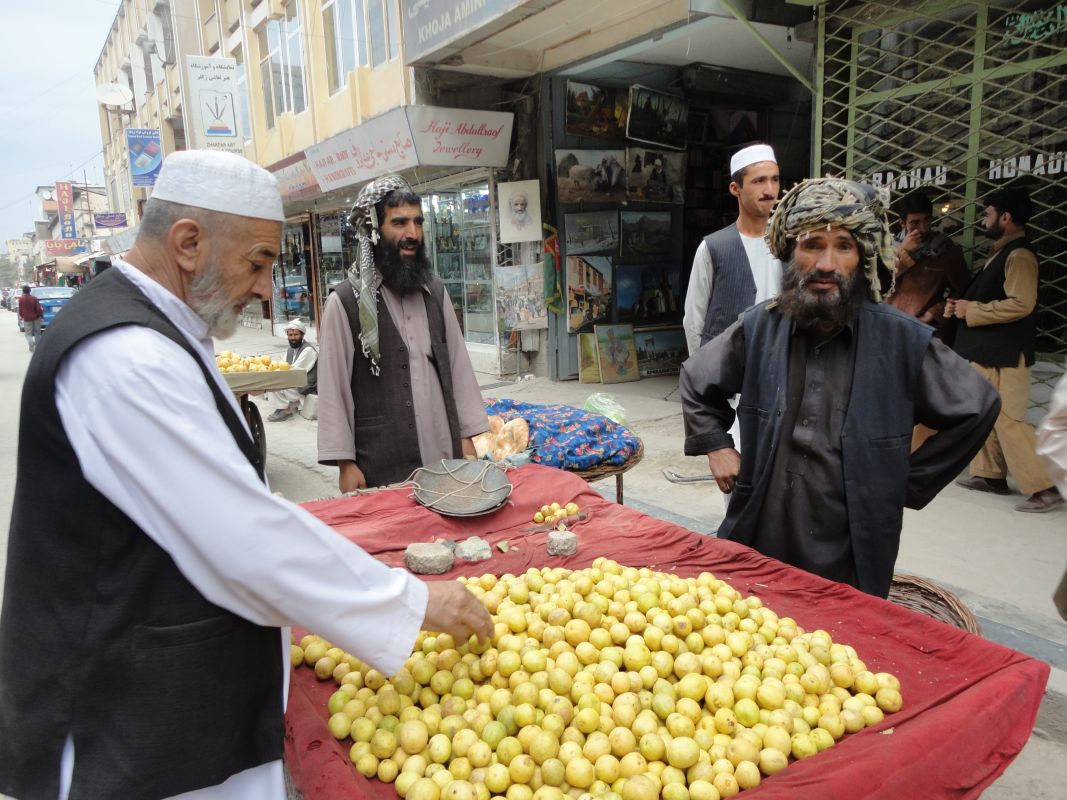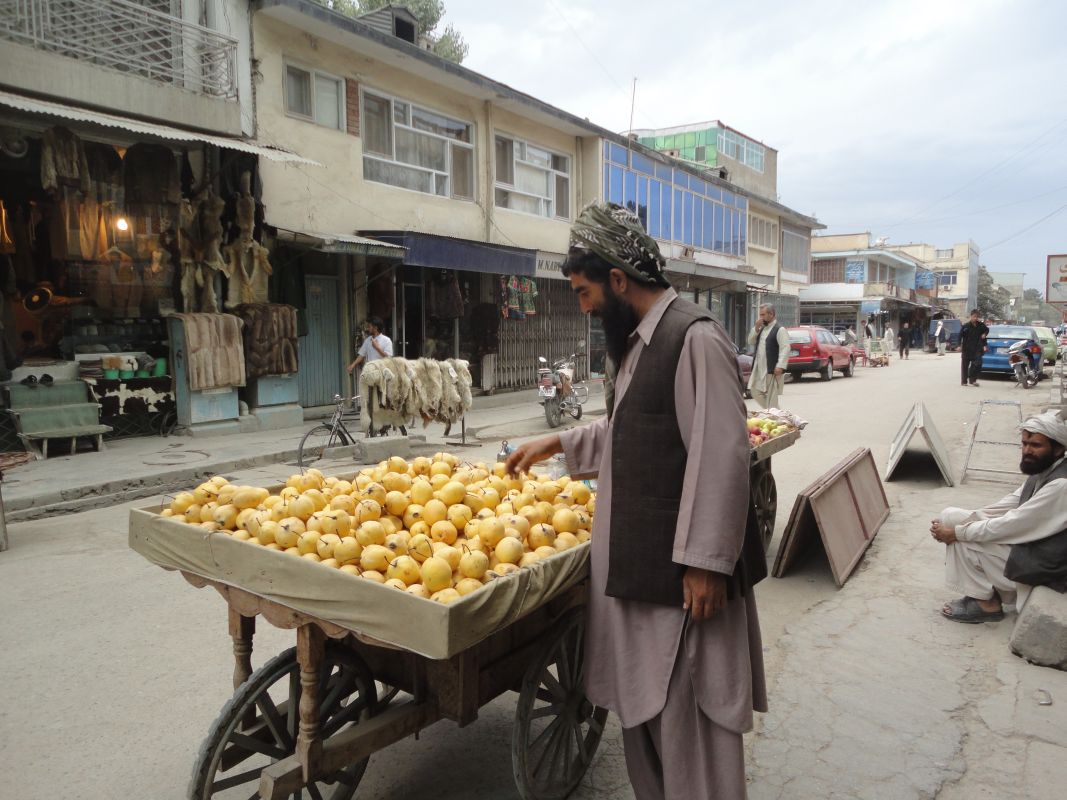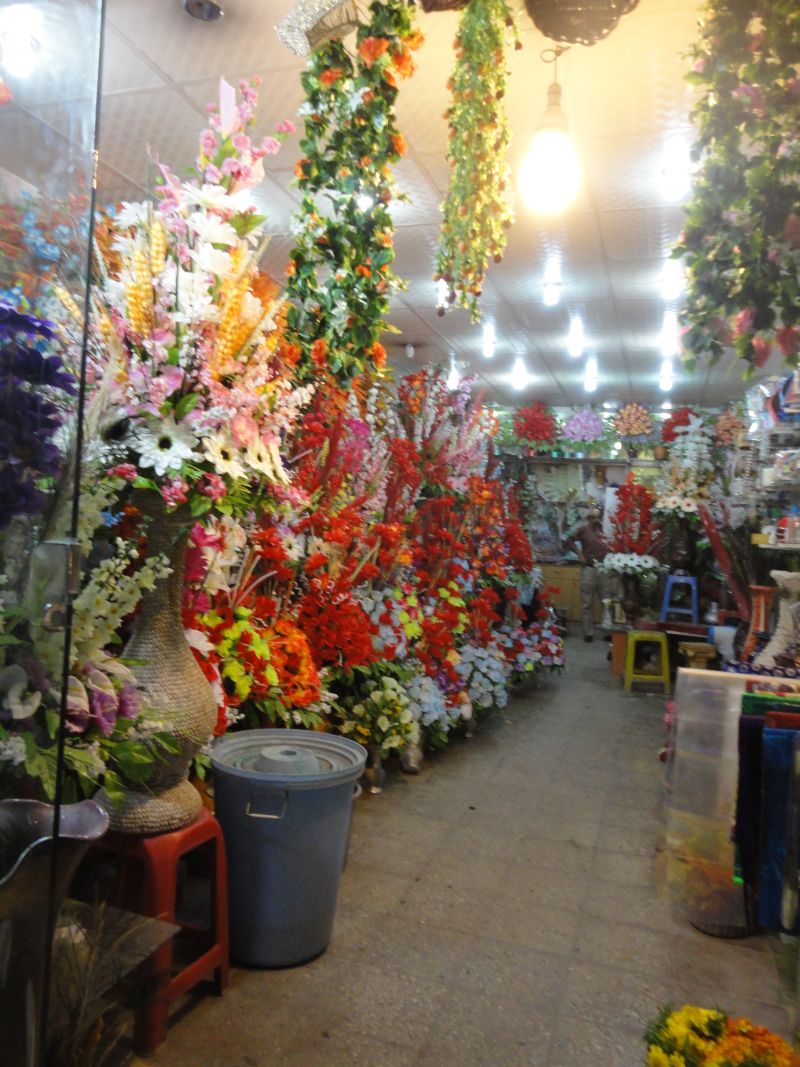On my final day in Afghanistan, I packed away the body armor and helmet that have been part of my daily wardrobe for the past three weeks and left the protective cocoon of the military to spend time in Kabul.
An armed guard, a metal detector, a pat down and bag search are the price of admission to the lobby of a Kabul hotel catering to Westerners. I appreciated the scrutiny when I checked into my downtown hotel, but felt a little unnerved by its necessity.
My guide for the afternoon was a 21 year old Kabul law student I’d met through a mutual friend. We walked to Chicken Street a few blocks away from the hotel. Chicken Street is a busy market street, packed with jewelry and carpet shops popular with foreigners. Street vendors sell fruit from their carts. Unlike the streets of capitals like Tehran and Damascus where you catch glimpses of another time, in Kabul you can imagine you’re actually in another time.
As we walked, we talked. My guide told me about life in Kabul under the Taliban. He recalls walking to school one day as a boy of 10 or 11 and seeing, hanging from a tree in a busy square, the severed feet and hands of someone who’d been punished in the Taliban’s brutal way. He said he was shaken for weeks afterward. He told me that under the Taliban, no entertainment or recreation was permitted. He told me about a soccer game scheduled at a large stadium in Kabul. Desperate for a diversion, people packed the stadium. Once they were in, they were barred from leaving and instead made to witness Taliban-style punishments and executions.
Hearing these stories it was easy to understand my friend’s fear that the Taliban might return. Maybe that’s a far-fetched idea, but for someone who lived through those years it must be a frightening possibility. He says the proof that its possible lies in the fact that executions by the Taliban are still frequent occurrences in some parts of the country (just that day a Deputy Governor had been killed in Ghazni Province). The next morning I asked my cab driver if he thought the Taliban could ever return to Kabul. “It’s not possible” was his reply.
We visited a shop owner. "Hey man," he said when he greeted me. He explained he'd taught himself English by watching American movies (actually this isn't so unusual - other Afghans told me the same thing).
He and my escort expressed the fear that American troops might withdraw in the foreseeable future. Again that seems unlikely. But these two men have no faith that the government security forces could stand on their own.
One of them had voted in the recent parliamentary elections, the other had not. Both expressed a complete lack of faith in the Afghan government, rooted in the belief that corruption is wide and deep. I thought of Vermont Guard Captain Larry Doane’s comment to me: “Corruption is perhaps the single most difficult problem to overcome here. Without a legitimate partner in the government of Afghanistan, then counter insurgency doesn’t work.”
In other words, all the work that Vermont soldiers are feeling cautiously hopeful about could be undermined by corruption.
After a while, I asked the men if poetry was popular in Afghanistan, particularly the work of Mowlana (the man we in the West call Rumi). Afghans claim Mowlana as theirs because its long been thought he was born here before his family traveled to Turkey. (I think some recent scholarship has put his birthplace in neighboring Tajikistan – but you probably won’t convince an Afghan of that).
“How can Mowlana help us?” the shopkeeper told me. He seemed exasperated by my question. “There is no place for poetry when there is so much death and killing and we are just trying to survive.”
As it got dark, I walked back to my hotel. I stopped to buy dinner from a street vendor roasting kebab over coals. I noticed I was standing in front of a snooker hall. That certainly wouldn’t have been here 10 years ago. I was told the same is true of Flower Street. A decade ago there were no brightly lit shops filled with the brilliantly colored flowers. Kabul seems bursting with energy and people. Millions have come here from the countryside in recent years. They say the city has changed a great deal.
As I waited for the kebab to cook, a young woman approached me. I’d guess she was 18 or 20 years old. She was selling gum. This is something children often do on the streets. She surprised me with her excellent English. I asked her where she'd learned it. She told me proudly that she had studied English at school in Kabul. She was dressed in a black chador, her hair carefully covered and her face exposed in the way many women in Iran dress – not the more familiar blue burka of Afghanistan.
I bought some gum and asked if I could take her photo. She refused, telling me it might cause trouble for her. That this bright young woman could be going to school and walking Kabul's streets dressed in this way is certainly a change from the time of the Taliban. Maybe one day she’ll have the opportunity to do something more than sell chewing gum.
Reporter's Journal
VPR's Steve Zind is spending three weeks in Afghanistan, covering some of the 1,500 members of the Vermont National Guard who are deployed there.
He'll provide a close-up view of the Guard's mission and how things are going from their perspective.
The Reporter
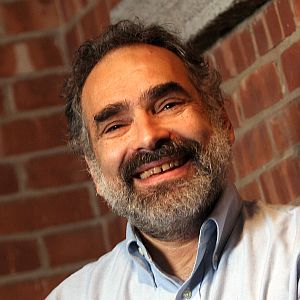
Steve has been with VPR since 1994, first serving as host of VPR’s public affairs program and then as a reporter, based in Central Vermont. Many VPR listeners recognize Steve for his special reports from Iran, providing a glimpse of this country that is usually hidden from the rest of the world.
